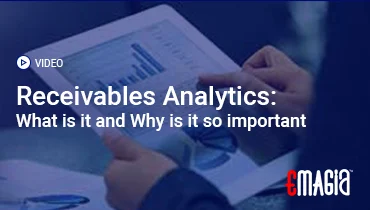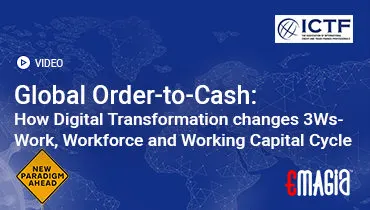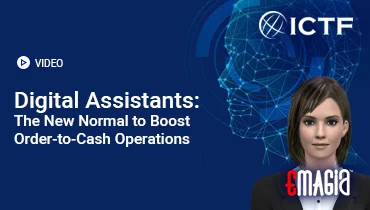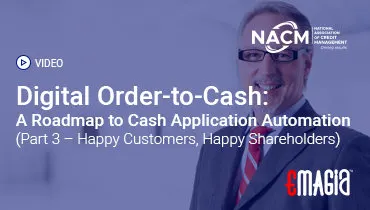The landscape of business-to-business (B2B) transactions is undergoing a profound transformation. For decades, paper checks, manual invoicing, and lengthy reconciliation processes dominated corporate financial operations. However, driven by technological advancements, evolving business demands, and a push for greater efficiency, the traditional methods of B2B payment processing are rapidly giving way to innovative digital solutions.
This shift isn’t merely about convenience; it’s a strategic imperative for businesses aiming to optimize cash flow, reduce operational costs, mitigate fraud, and enhance supplier and customer relationships. Understanding the Key Trends in B2B Payment Processing is no longer optional—it’s essential for any organization seeking to remain competitive and agile in today’s fast-paced global economy. This comprehensive guide delves into the most impactful developments reshaping how businesses send and receive payments, preparing you to navigate this exciting new era of commercial finance.
The Digital Revolution in B2B Payments: Current Shifts and Innovations
The evolution of B2B payments is characterized by a concerted move towards digital-first strategies. This shift is influenced by demands for speed, transparency, and automation across the entire financial ecosystem.
The Ascendancy of Real-Time Payments (RTP) and Instant Payments
One of the most impactful trends is the rapid adoption of real-time payment (RTP) systems. Unlike traditional ACH or wire transfers that can take days to settle, RTP platforms enable immediate fund transfers between bank accounts, often within seconds, 24/7/365. This instant settlement capability drastically improves cash flow for both buyers and suppliers, allowing businesses to make urgent payments, manage working capital more precisely, and benefit from faster access to funds. The launch and expansion of services like FedNow in the U.S. and established systems like SEPA Instant Credit Transfer in Europe are accelerating this global shift.
Decline of Paper Checks and Manual Processes
Paper checks, long a staple of B2B transactions, are rapidly losing ground. Their inherent inefficiencies—slow processing times, susceptibility to fraud, and high administrative costs (printing, mailing, reconciliation)—are driving businesses towards electronic alternatives. While checks still hold a notable share in some markets, the trend is unequivocally towards digital methods. The pandemic further accelerated this decline, highlighting the need for remote-friendly and touchless payment solutions.
Proliferation of Digital Payment Methods and Virtual Cards
Beyond traditional electronic transfers, the variety of digital payment methods is expanding. Virtual cards, unique 16-digit card numbers generated for single use or specific transactions, are gaining significant traction in B2B. They offer enhanced security, greater control over spending limits, and simplified reconciliation. Other digital options, including specialized B2B payment gateways, direct bank transfers, and even mobile wallets, are becoming commonplace, providing greater flexibility and convenience for business transactions.
Embedded Finance and Contextual Payments
Embedded finance refers to the integration of financial services directly into non-financial platforms or business processes. In B2B payment processing, this means payments are no longer separate, cumbersome steps but are seamlessly integrated within ERP systems, procurement platforms, or accounting software. This creates a frictionless experience, automating payment triggers based on business events (like invoice approval or delivery confirmation), streamlining workflows, and offering financial services (like embedded credit or financing options) precisely when and where they are needed.
The Growing Role of AI and Machine Learning in Payments
Artificial Intelligence (AI) and Machine Learning (ML) are revolutionizing B2B payment processing, particularly in areas like fraud detection, reconciliation, and predictive analytics. AI algorithms can analyze vast datasets to identify anomalous transaction patterns, significantly enhancing fraud prevention. In reconciliation, AI automates the matching of payments to invoices, even with complex remittance data, drastically reducing manual effort and errors. Furthermore, AI-powered predictive analytics offer insights into future cash flow, optimizing working capital management.
Expansion of Cross-Border Payments and Global Reach
As businesses increasingly operate on a global scale, the demand for efficient and cost-effective cross-border payment solutions is surging. Traditional international payments often involve multiple intermediaries, high fees, and lengthy settlement times. New B2B payment processing trends include innovations focused on streamlining these global transactions through optimized networks, local payment method support, and blockchain-based solutions, aiming for greater transparency, speed, and reduced foreign exchange risks.
Blockchain and Cryptocurrency in B2B Transactions
While still in nascent stages for mainstream adoption, blockchain technology and cryptocurrencies are emerging as potential disruptors in B2B payments. Blockchain offers a decentralized, transparent, and immutable ledger for transactions, promising faster settlements, lower costs by removing intermediaries, and enhanced security. Stablecoins, cryptocurrencies pegged to fiat currencies, are particularly relevant for B2B applications, offering the benefits of digital assets with reduced volatility, especially in cross-border scenarios.
Automation of Accounts Payable (AP) and Accounts Receivable (AR)
Automation is a foundational trend underpinning much of the B2B payment transformation. Automated AP systems streamline invoice capture, approval workflows, and payment execution, significantly reducing manual data entry and human error. Similarly, AR automation solutions accelerate invoice delivery, automate reminders, and streamline cash application and reconciliation. This end-to-end automation across the O2C (Order-to-Cash) and P2P (Procure-to-Pay) cycles dramatically enhances efficiency, reduces operational costs, and improves cash flow predictability.
Buy Now, Pay Later (BNPL) for Businesses
Initially popular in the consumer market, the “Buy Now, Pay Later” (BNPL) model is now gaining traction in the B2B space. B2B BNPL solutions allow businesses to pay for purchases in installments, providing greater flexibility in managing working capital and improving cash flow. For suppliers, offering BNPL can enhance customer loyalty and conversion rates by providing more attractive payment terms, bridging the gap between immediate delivery and extended payment cycles.
The Impact of Evolving B2B Payment Processing on Business Operations
These key trends are not isolated developments; their convergence profoundly impacts how businesses operate, creating new opportunities and challenges.
Enhanced Operational Efficiency and Cost Reduction
The shift towards digital and automated B2B payment processing directly translates into significant operational efficiencies. By reducing manual tasks, eliminating paper, and accelerating transaction speeds, businesses can reallocate resources from administrative overhead to more strategic activities. This leads to substantial cost savings associated with processing fees, labor, and fraud prevention.
Improved Cash Flow Management and Liquidity
Faster payment cycles, real-time visibility into cash positions, and predictable cash flow models (enabled by automation and AI) are critical outcomes of these trends. Businesses can better manage their working capital, optimize liquidity, and make more informed financial decisions, ensuring funds are available when needed for growth or unexpected expenses.
Stronger Supplier and Customer Relationships
Modern B2B payment processing fosters healthier business relationships. Faster payments improve supplier satisfaction and can lead to better terms. Offering flexible payment options and a frictionless payment experience enhances customer loyalty. Transparency and security build trust across the entire payment ecosystem.
Mitigated Fraud Risks and Enhanced Security
As digital payments become more prevalent, so does the focus on security. Trends like AI-driven fraud detection, virtual cards, and blockchain technology are inherently more secure than traditional paper-based methods. These advancements significantly reduce the risk of financial crime, ensuring data integrity and protecting sensitive business information.
Data-Driven Insights for Strategic Decision Making
Digital B2B payment processing generates rich data. Leveraging analytics and AI, businesses can gain deeper insights into payment patterns, customer behavior, and financial performance. This data informs strategic decisions related to pricing, credit terms, supplier negotiations, and overall financial strategy, moving finance teams from reactive to proactive roles.
Navigating the Future: Strategies for Embracing Modern B2B Payment Processing
To capitalize on these transformative trends, businesses must adopt proactive strategies and invest in the right technologies.
Prioritize Digital Transformation and Automation
The cornerstone of adapting to these trends is embracing digital transformation across your financial operations. This means moving away from manual, paper-based processes and investing in automated payment solutions for both accounts payable and accounts receivable. Prioritize cloud-based platforms that offer scalability and seamless integration.
Adopt Real-Time Payment Capabilities
Evaluate and integrate real-time payment capabilities where feasible. This might involve working with your bank or payment service provider to enable RTP for inbound and outbound payments. Educate your trading partners on the benefits of faster payment methods to encourage adoption.
Leverage Advanced Technologies: AI, Virtual Cards, and APIs
Explore solutions that incorporate AI for enhanced fraud detection and automated reconciliation. Implement virtual card programs for better spend control and security. Utilize API-driven platforms to integrate your payment systems seamlessly with your ERP, accounting, and procurement software, creating a unified and efficient financial ecosystem.
Focus on Security and Compliance
With increased digitalization comes increased risk. Ensure your payment processing solutions adhere to the highest security standards (e.g., PCI DSS compliance) and robust fraud prevention measures. Stay informed about evolving regulatory landscapes in B2B payments, especially for cross-border transactions.
Cultivate a Culture of Continuous Improvement
The B2B payment landscape is dynamic. Foster a culture within your organization that embraces continuous learning and adaptation to new technologies and payment methods. Regularly review your payment processes, solicit feedback from suppliers and customers, and be prepared to evolve your strategies to stay competitive.
Driving Payment Innovation: How Emagia Empowers Your B2B Operations
Navigating the complex and evolving landscape of Key Trends in B2B Payment Processing requires intelligent automation and advanced analytics. Emagia’s AI-powered platform is specifically designed to help businesses not only adapt to these trends but to thrive by revolutionizing their entire Order-to-Cash (O2C) cycle. By bringing together cutting-edge technology with deep domain expertise, Emagia enables organizations to achieve unprecedented efficiency, control, and agility in their financial operations.
Emagia’s comprehensive solution directly addresses the demands of modern B2B payments by:
- Accelerating Digital Payment Adoption: Emagia facilitates the acceptance of a wider array of digital payment methods, including virtual cards and real-time payments, streamlining the inbound cash flow. Our platform ensures seamless integration with various payment gateways and banking systems, making it easier for your customers to pay.
- Powering Intelligent Automation (AI-Driven): Our AI (e.g., Gia) automates tedious and error-prone tasks across credit, collections, cash application, and deductions management. This includes AI-powered invoice matching, automated payment reminders, and predictive analytics for early risk identification, significantly reducing manual effort and processing costs.
- Enhancing Global Payment Capabilities: For businesses with international operations, Emagia offers robust features for managing multi-currency transactions and cross-border complexities. Our platform provides the visibility and automation needed to streamline global B2B payments, ensuring faster settlement and reduced FX risks.
- Providing Real-Time Cash Visibility and Forecasting: Emagia delivers real-time insights into your accounts receivable and cash position. With AI-driven cash forecasting, businesses can accurately predict future cash inflows, enabling better liquidity management and more strategic decision-making regarding working capital.
- Fortifying Security and Compliance: Our platform is built with robust security features to protect sensitive payment data and ensure compliance with industry regulations. By automating processes and reducing human touchpoints, Emagia helps minimize fraud risks and enhances the overall security posture of your B2B payment ecosystem.
Partnering with Emagia allows your finance team to move beyond reactive payment processing to proactive financial orchestration. By automating, digitizing, and infusing intelligence into your B2B payment operations, you can unlock significant cost savings, improve cash flow predictability, and foster stronger, more efficient relationships with your trading partners.
Frequently Asked Questions About B2B Payment Processing Trends
What is the biggest trend in B2B payments today?
One of the most significant trends transforming B2B payments is the rise of real-time payments (RTP) and instant payment systems. These technologies enable immediate transfer of funds, drastically improving cash flow and efficiency for businesses by eliminating payment delays.
How is AI impacting B2B payment processing?
AI and Machine Learning are revolutionizing B2B payment processing by enhancing fraud detection through sophisticated pattern analysis, automating complex reconciliation tasks, and providing predictive analytics for more accurate cash flow forecasting. This leads to reduced manual effort and improved financial control.
Why are businesses moving away from paper checks in B2B transactions?
Businesses are moving away from paper checks due to their inherent inefficiencies, including slow processing times, high administrative costs (e.g., printing, mailing), and increased vulnerability to fraud. Digital alternatives offer greater speed, security, and automation.
What is embedded finance in the context of B2B payments?
Embedded finance in B2B payments refers to integrating financial services directly within core business applications like ERP or procurement software. This makes payments a seamless, contextual part of workflows, automating triggers and offering financial services directly at the point of need, reducing friction.
Are virtual cards becoming common for B2B payments?
Yes, virtual cards are rapidly gaining popularity in B2B payments. They provide enhanced security by generating unique card numbers for each transaction, allow for greater control over spending limits, simplify reconciliation, and offer a more efficient digital payment method compared to traditional cards or checks.
How do these payment trends improve cash flow for businesses?
These trends improve cash flow by accelerating payment cycles through real-time transfers, reducing delays from manual processes, enhancing cash application automation, and providing better visibility into financial inflows. This ensures businesses have quicker access to their funds and can manage liquidity more effectively.
What role does automation play in modern B2B payment processing?
Automation is central to modern B2B payment processing, streamlining tasks across accounts payable and accounts receivable. It automates invoice capture, approval workflows, payment execution, reconciliation, and collections, drastically reducing manual errors, operational costs, and processing times, leading to greater efficiency.
Conclusion: Embracing the Evolution of B2B Payment Processing
The world of business-to-business payments is undergoing an irreversible and exciting transformation. The transition from manual, paper-based operations to intelligent, digital ecosystems is not just a technological upgrade; it’s a fundamental shift that empowers businesses with unparalleled efficiency, control, and strategic foresight. From the immediate gratification of real-time payments to the intelligent automation powered by AI, and the seamless integration offered by embedded finance, the Key Trends in B2B Payment Processing are reshaping how organizations manage their most vital financial flows.
For businesses seeking to thrive in this new era, the imperative is clear: embrace these innovations. By investing in modern payment technologies and adopting a proactive approach to digital transformation, companies can unlock significant operational efficiencies, optimize cash flow, mitigate risks, and build stronger, more agile financial foundations. The future of B2B payments is here, and those who adapt will lead the way in driving greater value and sustainable growth.



